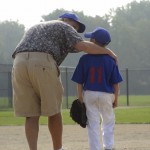Protecting Your Children from Predators

We are so engrained that professionals – clergy, teachers, coaches – are trustworthy, deserve respect, and should not be criticized, particularly because they are so giving of themselves. It is hard to imagine that such so-called role models and mentors will do anything less than protect us and our children. However, over the last decade, we have become all too aware of all of the child sex abuse cases and scandals involving Catholic priests, and more recently, the tragic stories about sex abuse charges against Penn State’s former defensive football coach and an assistant college basketball coach. We are all shocked and wonder “What’s next? What other shoe will drop?”
A few days ago we learned of a young child, John Doe, who was abused by his pediatrician for several years. His father just found out about such horrific conduct and realized how much his child is suffering and was affected. Not only did this predatory pediatrician sexually abuse John Doe, but what seems to be typical, he also abused over a hundred other victims – some of whom were very young infants. The doctor has already been arrested and tried and is in jail, which is good, but too late for these kids. The victimized children have also brought a class action lawsuit seeking money damages for the damage inflicted by this monster. The question is: What can I do as a parent to keep my child safe from predators like this?
The number one thing is to be involved in all aspects of your children’s lives, even over their objections. Keep your parental radar on at all times. My mother used to say to me that if it makes your nose wiggle it probably doesn’t smell good. That was her way of saying, use your common sense.
If your child is involved in something, you can get involved too as a volunteer – be that youth sports, scouting, or virtually anything. Also, there are numerous professional and governmental websites where you can find out information about the people having an impact on your children’s lives. But the single most important thing you can do is keep an open line of communication with your child and listen to what they say or aren’t saying, and if it makes your nose wiggle, pay close attention.

